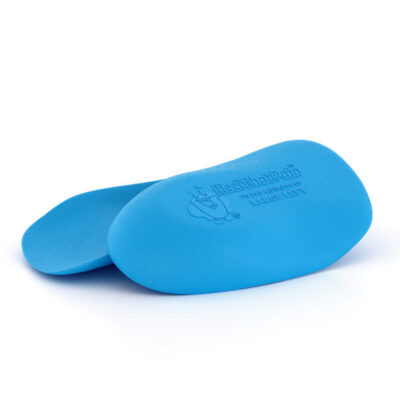 If you’re suffering from chronic or severe symptoms of plantar fasciitis, the question, “How do I find a heel pain doctor near me?” is at the very top of your list.
If you’re suffering from chronic or severe symptoms of plantar fasciitis, the question, “How do I find a heel pain doctor near me?” is at the very top of your list.
And while that question might seem easy enough to answer in the information age, it can be surprisingly difficult to know where you should start in your search for an amazing plantar fasciitis doctor near you. Save yourself time and frustration with these helpful tips!
Tips for Finding a Plantar Fasciitis Doctor Near Me
Finding the right plantar fasciitis doctor near you is one of the most important steps you’ll take toward healing, particularly if your symptoms are severe or have not responded to conservative heel pain care.
Use these handy resources to quickly find the right podiatrist near you:
Talk to Your General Practitioner
While your GP might not be the right fit for specialized podiatric care, here or she is very likely to be connected with doctors in many different specialties, and be familiar with the experiences that other patients who have been referred to that doctor have fared!
Search the APMA
The APMA (American Podiatric Medical Association) allows you to search for a podiatrist near you, using either a zip code search or a mile radius search (since the podiatrist closest to you might have a different zip code). Using this tool also allows you to find out whether your potential podiatrist has been board certified in different specialties (like surgery), which may be important to you.
Use the APMA Search Tool to Find a Foot Doctor Near You
Check Out Your Insurance Provider Network Online
If your insurance network is choosy, and you want to make sure that the foot doctor you choose is going to be fully covered, you may want to check your provider’s online network. Most providers offer a searchable database of in-network doctors that can be narrowed by speciality and location.
Use RateMDs.com (and Cross-Reference with Google!)
The right bedside manner, and positive outcomes from other patients are (understandably!) important factors from patients. RateMds.com allows you to read reviews from patients in your area, and can help you find a doctor with high reviews. More than 2 million providers can be found on this site alone. Make sure to cross-reference your findings with Google reviews, especially when there are only a few experiences shared on RateMds.com.
Use Local Social Media
While Facebook and Instagram aren’t much help in finding a plantar fasciitis doctor, local forms of social media, like Nextdoor.com can connect you with people in your neighborhood and district. The site allows you to post questions, asking for recommendations about which podiatrist in the area comes highly recommended, or to search other people’s questions about finding a foot doctor.
What Kind of Foot Doctor Should I Look For?
In general, if you have chronic or severe plantar fasciitis, you’ll want to start by meeting with a podiatrist. He or she can help you explore many different medical treatments for your condition, and in many cases may be certified to perform surgery, should you decide on that option.
If you are pretty sure, based on your medical history and research, that you are headed toward a surgical procedure, you may want to look for an orthopedic surgeon, who will typically have additional surgical expertise — but may be more difficult to make an appointment with. Depending on your condition and the success of more conservative medical interventions, a podiatrist may refer you to an orthopedic surgeon.
Will I Need a Referral for a Plantar Fasciitis Doctor?
It can be confusing to know whether or not you need a referral for a specialist like a plantar fasciitis doctor.
For the most part, you do not need a referral to make an appointment with a podiatrist. However, you should still check with your insurance provider, since some carriers have more complex rules about coverage for specialized medical care.
Getting a referral can also be helpful in other ways. If you have had a good relationship with your family doctor or general practitioner, he or she will often be willing to send an introductory letter to the podiatrist they recommend, along with a patient history (including injuries, treatments you have already tried, and medications you may be taking).
How did you find your foot doctor? Share your experience and tips in the comments below!



